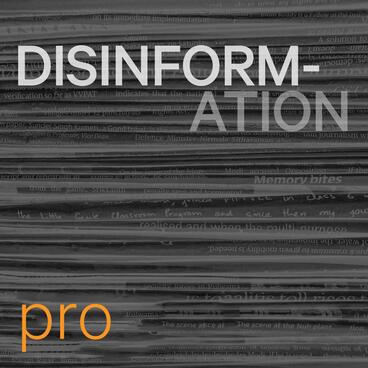US agencies warn organizations to be alert for deepfakes. Current themes in Russian disinformation. Reacting to the strike against Russian naval units in Sevastopol.
Google announces watermarking technology for synthetic images. China using AI to generate content for influence campaigns. Internal Russian disagreements: military and academic. Pay-to-play in the Russian milblogger space. Ukraine's and Russia's presidents have a sharply different view of the state of the war. The EU finds Big Tech soft on Russian disinformation. Russian television service introduced into the occupied Donetsk.
Chinese influence campaign taken down by Meta was long-running and persistent. Influence laundering as Russia's long disinformation game. Comment on disinformation as a threat to upcoming US elections. The Kremlin's line on Mr. Prigozhin's death: the Anglo-Saxons did it. Narrative themes in Russian influence operations. Direct propaganda on the big screen.
Wartime disinformation out of Russia. Russian influence operations aimed at NATO's July summit. Russian influence operations, post-Prigozhin. Stalin's rehabilitation continues in Russia. The morally coarsening effect of war, exacerbated by the characteristic disinhibition of social media.
China accuses US of installing backdoors in Wuhan seismic laboratory. Kremlin accuses British Intelligence of enlisting "Ukrainian Nazis" to assassinate pro-Russian African leaders. What bot moderation looks like. Moscow court fines Reddit, Wikipedia, and Google for unwelcome content about Russia's war.





